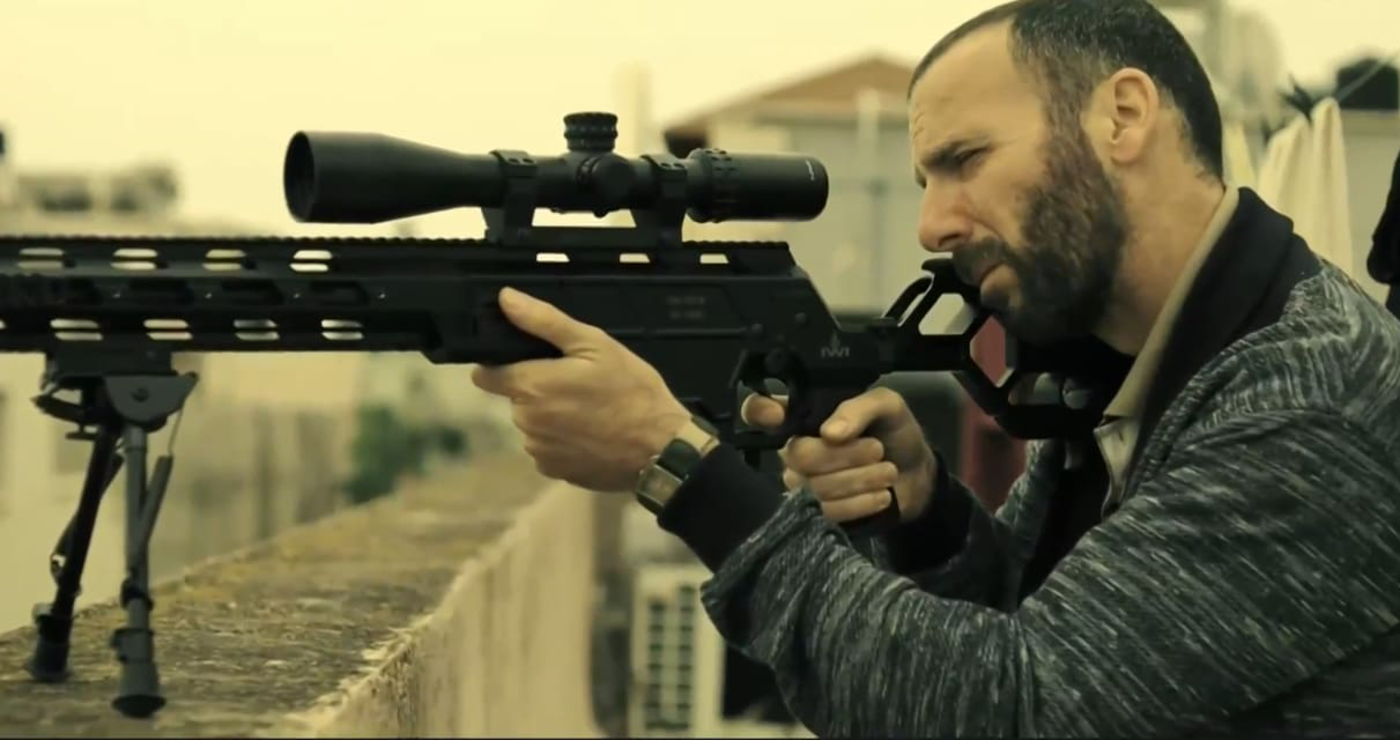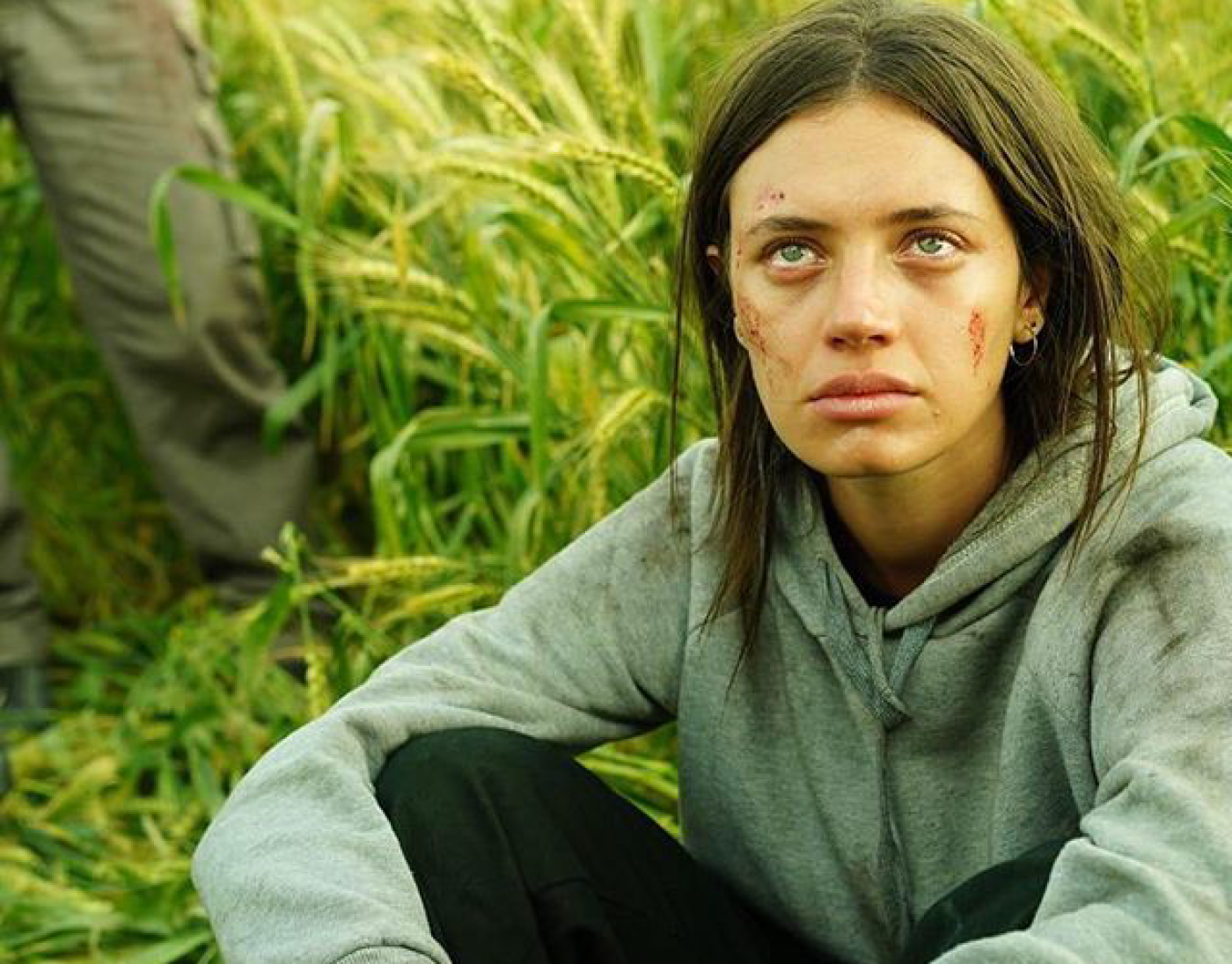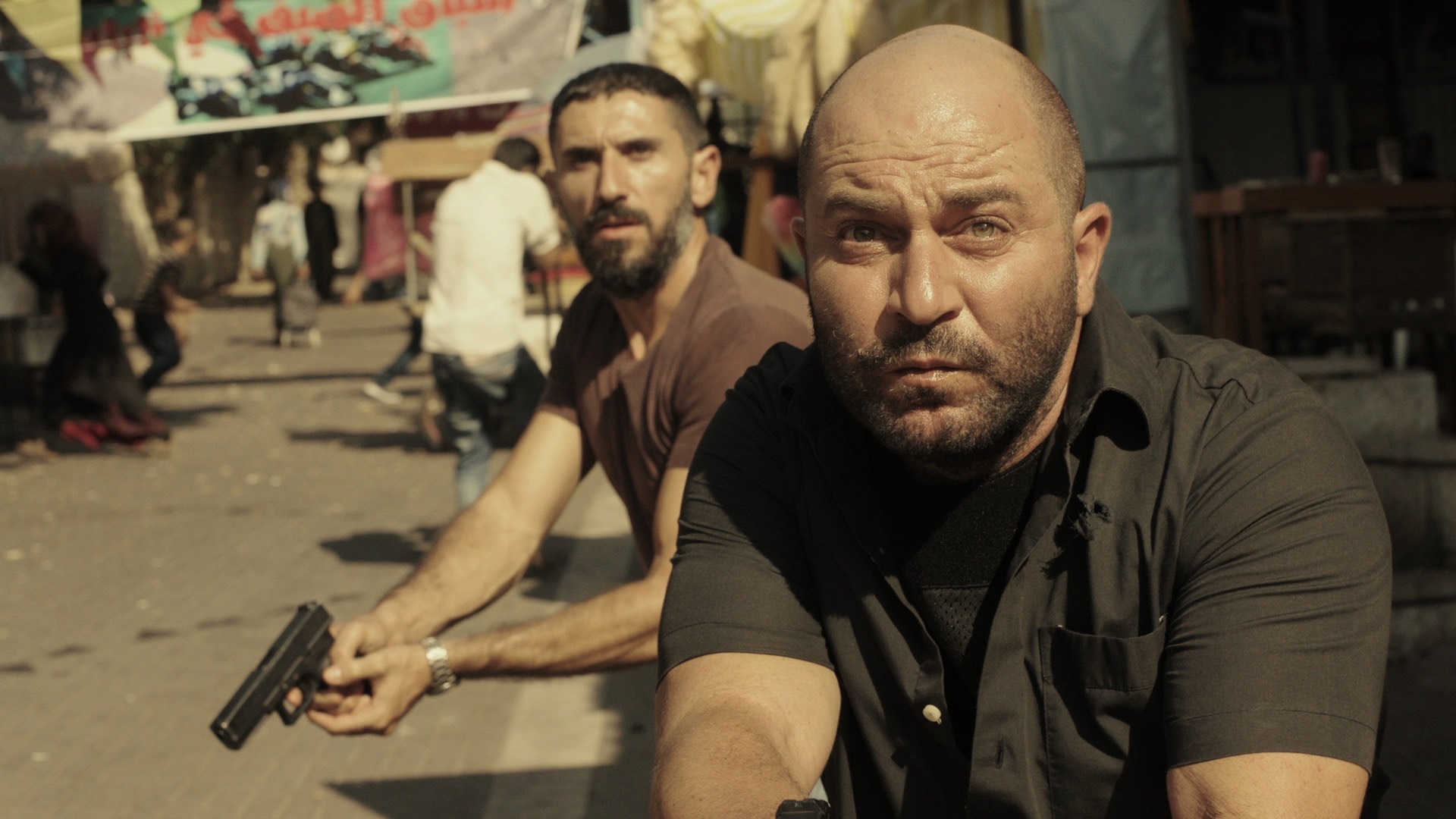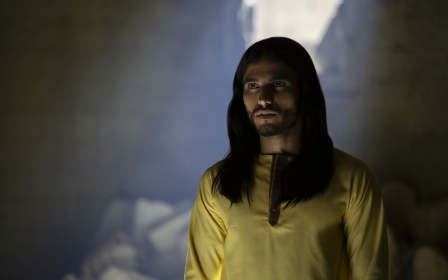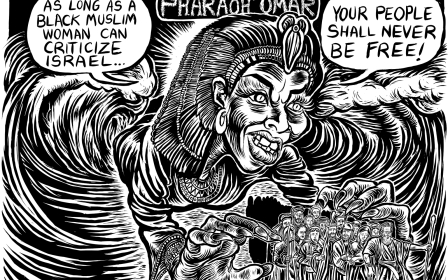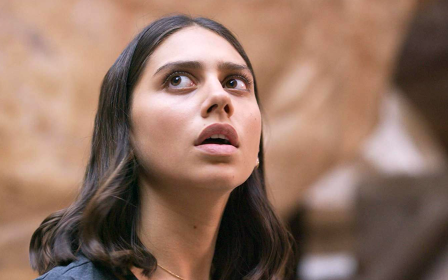Fauda on Netflix: Palestinians can't shoot straight (and other stuff we learned)

Editor’s note: This piece contains spoilers for the first three seasons of Fauda.
The third season of the award-winning Israeli TV hit Fauda (Arabic for “Chaos”) has just been released on Netflix. It has raised eyebrows for its "thrilling" depiction of an Israeli Mista'arvim, or elite undercover unit, who spend their days infiltrating the occupied West Bank and killing bad Palestinians. The New York Times called it a “gritty, naturalistic thriller” and compared it to the The Wire.
This time, protagonist Doron Kavillio (Lior Raz, in Rambo-lite mode) and his unit have their eye on a Hamas-linked family in Hebron, where Doron is undercover as a coach to Bashar Hamdan (Ala Dakka), a talented young Palestinian boxer.
When Doron is exposed as an infiltrator, a gunfight ensues. A Hamas leader in the West Bank is killed. The confused Hamdan family is accused of treachery. Eventually two young Israelis at a pre-military academy are kidnapped. Their subsequent transfer through a tunnel to Gaza then unleashes an unfathomable Israeli rescue mission.
You get the idea: like seasons one and two, Fauda is a TV spectacle, racy and conniving. But nobody explains why the Israelis feel so insecure, nor why the Palestinians keep on dreaming up plots to attack the Israelis. The Israeli unit breaks the rules in the name of the nation and pulls through inconsequential commissions of inquiry over their conduct. Palestinians are merely a scene away from dying.
Fauda provides a pop-cultural peg on which to hang a whole rag-bag of Israeli colonial rubric. Survive one 45-minute episode of bi-lingual-comic-book bloodshed, and you might end up with a bit more insight into the psychology which underpins some of Israel’s liberal Zionism.
But to save you the bother, here are five key takeaways.
1. Israelis love ‘good’ Palestinians
According to Fauda, the Israeli special forces may be cold hearted assassins - but will always help those who profit from the Israeli occupation (fellow Palestinians would call them collaborators, or ameel in Arabic).
In season one, Doron courted Dr Shirin El Abed (Laetitia Eido), the Palestinian cousin and later fiancee of a Hamas operative in the occupied West Bank.
In season three, Doron neglects his own son and becomes a father-figure to Bashar. He subsequently kills the young boxer’s father Jihad (Khalifa Natour), days after his return from an Israeli prison.
When Bashar turns to violence, Doron insinuates that "we turned him into that" and becomes obsessed with "saving" him.
True, Doron is more firearm-totting sociopath than angelic white saviour - but hey, what’s the difference?
2. Palestinians only know revenge
Fauda is heavy on Palestinian dedication to the family. Repeatedly, Palestinians have to choose between their children or the movement. Guess what? They always choose their families and betray the movement.
And their interest in joining the movement is usually driven by one thing – the desire for revenge after the loss of a family member.
In doing this, Fauda thinks it’s humanising Palestinians. They aren’t just bloodthirsty hooded men running around screaming "Allahu Akbar", it wants to say.
But it swaps that trope for another. It is always Palestinian stupidity, greed, emotion and lust that destroys their plans, and every Palestinian is just a couple of slaps away from selling out.
Fighting for Palestine is depicted as a vendetta. Martyrdom is a crutch. Palestinian resistance, Fauda seems to say, is built on the souls of upset sell-outs.
In contrast, Israeli soldiers may be socially dysfunctional, even breaking Israeli laws, but they are incorruptible to their country’s cause. They need not worry – the system will always find a way to redeem their actions, however illegal they may be.
Some acts though are beyond redemption. In season three, Avihay (Boaz Konforty), the undercover unit’s ace sniper, accidentally kills a fellow soldier during a mission. He can’t be redeemed.
3. One Palestinian is pretty much like any other
In season three, Abu Muhammad, the head of Hamas’s military wing, is the designated Bond villain. Handsome and eloquent, he wears denim with a fur collar, has a salt and pepper haircut and is soft – so soft! “Be gentle with her,” he purrs when one of the hostages, Yaara Zarhi (Reef Neeman), is moved to another location.
But he’s the exception - the hospitable, “complex” terrorist. He contrasts sharply with the hundreds of Hamas operatives who are big, burly and masked, sporting machine guns and camouflage gear, but is no match for a quartet of Israeli operatives working out of a collaborator’s basement in Gaza.
Fauda has made much of the humanity of its Palestinian characters. But by the time the end credits roll, most are ultimately nameless, faceless Arabs, dying by the dozen like scores of Native Americans in a John Wayne Western.
4. Gaza is another planet
If the West Bank is an Israeli army playground, where soldiers can at least make merry with drones and raids and annexations, then Gaza is a different world
In season three, Eli (Yaakov Zada Daniel), head of the counter-terrorism unit, suffers a panic attack in the middle of Gaza City during a secret mission. He has, of course, been traumatised, as have all Israelis on past missions, by this hell-on-Earth’s refusal to die.
As Eli collapses to the floor, a Palestinian woman approaches and asks if he needs help, in what is possibly the most ironic scene in modern day TV.
In Fauda, writes activist Ory Noy, Gaza is a place of myth, that’s “not wholly real, in the sense that real people live there, and yet simultaneously very scary and threatening.”
This sense of otherness extends to the shoot itself: the scenes were shot in impoverished Israeli-Arab villages where villagers were “unbelievably friendly and cooperative”.
Given how Gaza is projected as a remote, obscure island where life is cheap and shambolic, Palestinians are little more than props without cause or purpose, they may as well have shot the scenes on Mars.
5. Israeli counter-terrorism? They’re doing it for us
In season three, Yaara is kidnapped and cries endlessly, even as she is fed fresh hummus and bread and showered with exaggerated respect and care by her kidnappers.
Yaara is the personification of innocence – and keeping her safe justifies Israeli state operatives turning into monsters.
But deep down, those Israeli soldiers and special forces, y’know, have feelings too.
We are repeatedly reminded that, sure, Israeli counter-terrorist units break the law, what with their extra-judicial killings, but it’s for our protection (“our” obviously excludes any of the “bad” Palestinians – actually, most Palestinians). It’s just carrying on with what the Israeli authorities have been doing for the past seven decades or so.
And there you have it: Fauda, a show which owes more to 1948 than 2020.
This article is available in French on Middle East Eye French edition.
Middle East Eye propose une couverture et une analyse indépendantes et incomparables du Moyen-Orient, de l’Afrique du Nord et d’autres régions du monde. Pour en savoir plus sur la reprise de ce contenu et les frais qui s’appliquent, veuillez remplir ce formulaire [en anglais]. Pour en savoir plus sur MEE, cliquez ici [en anglais].



